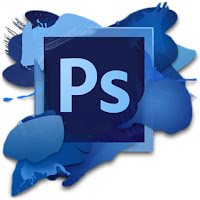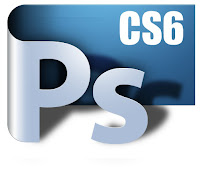 If you spend so much time working on
Photoshop, you should definitely try to learn a few shortcut commands to make
it a lot easier to handle different tasks. These shortcuts keep you from
changing the position of your mouse cursor and allow you save a lot of your
time in the process. Here is a list of some useful shortcuts – you can also use
some of them on your web browser.
If you spend so much time working on
Photoshop, you should definitely try to learn a few shortcut commands to make
it a lot easier to handle different tasks. These shortcuts keep you from
changing the position of your mouse cursor and allow you save a lot of your
time in the process. Here is a list of some useful shortcuts – you can also use
some of them on your web browser. 1 - Ctrl + Alt + Shift + K
This is probably the most important
tool to help you learn everything about different keyboard commands.
2 - Ctrl + Z (Undo)
You can use this function in most of
the Windows programs and software. Most people are already aware of this
command and have already used it with different programs. You can also use it when
working in Microsoft Photoshop. For those who don't know, this command will
undo the very last move you made. This command is quite useful, especially when
you are working on images.
3 - Ctrl + 0 (zero) (Fit on Screen)
If you are working on a image and need
to pay attention to small details, you should remember this particular command,
as it keeps you from using the 'zoom-in' function time and again. Just press
this command and the image will fit onto the screen for better viewing
experience.
4 - B (Brush Tool)
When working with different images, you
will have to use several tools repeatedly. To save your time, you can simply
use this command and it will activate the 'brush' tool.
5 - Z (Zoom Tool)
While editing images, you sometimes
need to see the bigger version of an image, and that's when you have to use the
'Zoom' tool. To avoid wasting your time looking for the tool, you can simply
use this command, which will help you to zoom our or zoom in of your images.
You can also press the Alt key while using this command to zoom out quickly.
6 - H (Hand Tool)
Many Photoshop users sometimes need to
pan quickly, and for this, they have to look for the hand tool in the menu. You
can save your time simply by using this particular shortcut, which allows you
to activate the hand tool that you can use to move an object/image, even if you
have zoomed in on it. It is also possible to move an object around by pressing
and holding onto the Ctrl key.
7 - 1->0 (Tool Opacity)
For some, this shortcut command may be
a bit tricky; for others, it's quite useful and they simply cannot do without
it. With this command, you can set your brush opacity to a specific number. For
instance, if you type in "100", this will set the opacity to 100%.
You can reduce it by entering a different number – it will be set to 55% if you
enter the number 56. It is also possible to set a smaller percentage for which
you need to enter a zero before the number.
8 - Shift + 1->0 (Tool Flow)
You can use this command to change the
tool flow. The important thing to remember is that it is not enough to just
press the shift key once – you have to press and hold it, and, at the same
time, press any number between one and zero. If you understand the idea behind
the command used for the tool opacity function, it will be easier to learn this
one too.
9 - Tab (Hide/Show Palettes)
This one is the all-time favorite of
editors, as it helps them to create more space to work. By using this command,
you can simply hide the palettes, which will leave you with more space and less
frustration.
10 - Ctrl + Shift + N (New Layer)
When working with layers, it often
feels frustrating to leave the first layer and then look for the options to add
another one. Instead, you can simple use this shortcut command and you will
have a new layer dialog box appearing on your screen. This layer will find a
place on top of your active layer.
11 - Ctrl + Alt + Shift + N (New Layer No Dialog)
If you don't want a dialog box to
appear at the time of adding a new layer, you can simply use this shortcut
command.
12 - Shift + ] (Increase Brush Softness)
Sometimes, you have to increase the
softness of your brush, and this often takes some time to locate the right
option. With this shortcut command, you can increase the brush softness by 25%.
For more softness, you can keep pressing the button. It is a simple way of
identifying the best brush softness for your project.
13 - Shift + [ (Decrease Brush Softness)
If you think the brush softness is on
the higher side, you can decrease it simply by using this shortcut command. You
will be able to reduce the softness by 25% by pressing the button once.
14 - ] (Increase Brush Size)
 If you are editing, it sometimes
becomes important to remember the position of your mouse cursor. But it is
obvious to lose your original position if you have to move your mouse to change
the brush size. The simple solution is to use this shortcut command, which will
change the brush size without changing the position of your mouse pointer.
If you are editing, it sometimes
becomes important to remember the position of your mouse cursor. But it is
obvious to lose your original position if you have to move your mouse to change
the brush size. The simple solution is to use this shortcut command, which will
change the brush size without changing the position of your mouse pointer. 15 - [ (Decrease Brush Size)
If the brush size is too big to be
suitable for your project, simply enter this shortcut command on your keyboard
to reduce it. This command allows you to change the size of the brush while
keeping it in the same position.













0 comments:
Post a Comment